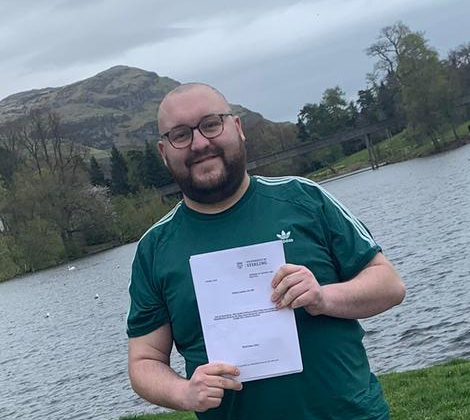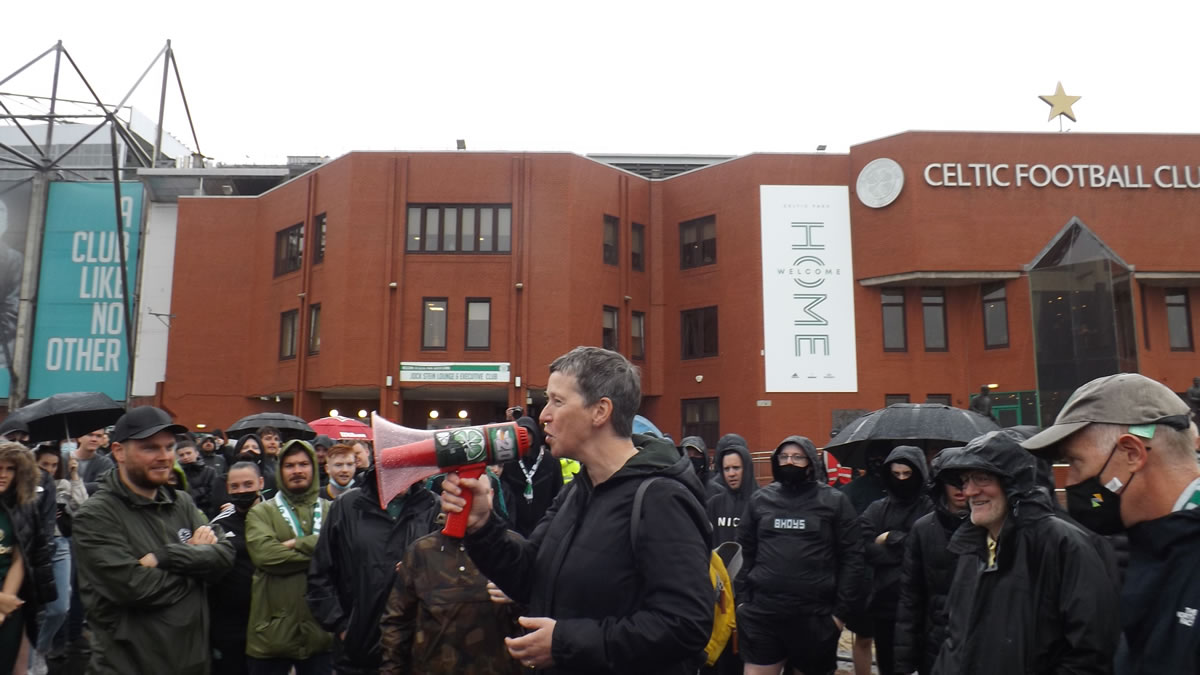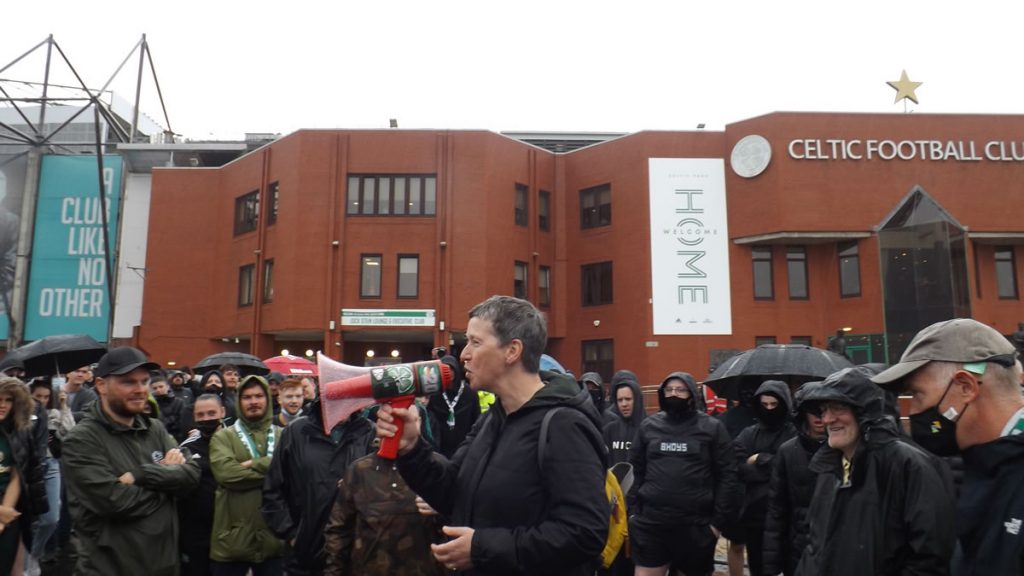
On a rather wet Glasgow afternoon, you’d be forgiven for thinking that any attendees of Celtic’s home match with Dundee would want to dart from the car and into the dry safety of the stadium, however for many this presented an opportunity to protest the regime at the club that allowed them to stagnate and fail so spectacularly last season.
The Celtic manager Ange Postecoglou and his charges were met with rapturous cheers, and the full back catalogue of songs from a support who had been desperate to cheer on their men for the best part of 18 months. However there was a sense of purpose to it all. Before the Australian and his 4 coach loads of stars arrived in Glasgow’s east end, the Celtic board were treated to cries for change, for an end to PLC mismanagement, and ultimately fan ownership.
Speaking at this rally, organised by the “Celtic Shared” group (made up of fan orgs like Bhoys and North Curve Celtic), was the Celtic Trust’s Jeanette Findlay (pictured) who has been a central figure in everything good done by the Celtic support over a number of years. Through a glitchy megaphone she told onlookers of the Trust’s plans towards that ultimate goal of fan ownership, with their #DriveforFive campaign, a democratic group for ordinary shareholders, to own a 5% stake in the club.
A few weeks before, Jeanette and I spoke at length via Zoom, about the move towards fan ownership, and about the struggle between Celtic’s largely left wing, working class support, and the Conservatives on the board.
When I asked about this divide Jeanette told me “there is a disconnect between them [the board] and the supporters. It’s a divide along class lines. the Kellys and the Whites were bad custodians, but they understood it, the players and the board now are so vastly apart from us in wealth they can’t understand”
This struck me, as I remembered the scenes of angry fans chasing Celtic players away in their expensive cars down the London Road, I’m reminded of how far football has come, from a community being represented by players, to what we have today.
Findlay went further on this disconnect telling me: “The board likes to position itself as apolitical which often means we’re at odds with them, and they’re on the side of the establishment.
“We’re radical, they’re no. We’re progressive, they’re no. We’re left wing, they’re no.”
I asked Jeanette about the disaster that was the 2020-2021 season at Celtic, and how she felt it came about.
“The board’s attitude to fans is bigger than any manager or performance. 9 in a row papered over problems with PLC that have been going on from the beginning.”
“Even if we accept the corporate model, accept capitalism and the PLC organisation, we aren’t a very well run football club. There’s incompetence there of course there is, but there’s also a lack of care.”
Despite all this though, Findlay remained optimistic about what Celtic can be in terms of a force for good in Scottish Society.
“The PLC is not the club, the club as a community can have a massive impact on Scottish society. We’re the national side of an immigrant people.”
“‘The Club’ have done good things on OBFA and Anti Irish discrimination, helped the An Gorta Mor fundraising which has raised enough to build the statue. But ultimately they aren’t interested in any Irishness they can’t sell or put on a T-shirt. The Kelly’ and the Whites fought to keep the tricolour up, if such a fight came about today I’m not sure our current board could stomach it.”
The struggle for the soul of Celtic Football Club will be one of the theatres of class conflict to keep an eye on over the coming years, and it certainly seems like an uphill fight, but one that can be won.
You can join the Celtic Trust at http://celtictrust.net and follow @Celtic_Shared on Twitter.
Tom Flanagan




